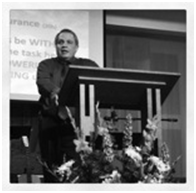
“A Piece of My Mind”
July-August 2019 Newsletter
Advancing Christian Faith and Values,
Defending Religious Liberty for All,
Supporting Civility and the Common Good
through Preaching, Teaching, Writing, Activism and Reasoned Conversations

July 4, 1776 –A Declaration of Dependence
 “…the Laws of Nature and of Nature’s God…”
“…the Laws of Nature and of Nature’s God…”
“…all men are created equal, that they are endowed by their Creator with certain unalienable Rights…”
 “…appealing to the Supreme Judge of the world for the rectitude of our intentions…”
“…appealing to the Supreme Judge of the world for the rectitude of our intentions…”
“…with a firm reliance on the protection of divine Providence, we mutually pledge to each other our Lives, our Fortunes and our sacred Honor.”
 Back the Badge – Psalm 106:3
Back the Badge – Psalm 106:3
“Blessed are those who maintain justice.”
Pictured: Officer Natalie Corona, 22, of the Davis (CA) Police Department, killed by gunfire on January 10, 2019 very close to where my granddaughter once lived while a student at U.C. Davis.
I love watching Blue Bloods. But hardly a week goes by that Danny doesn’t shoot someone. On one occasion Danny and his partner confront two gang members in an elevator. Now you have four guns pointed at adversaries in a tight space.
No surprise. The good guys win; the bad guys are taken out.
That’s not how the real world of law enforcement revolves.
In the make-believe world of television, police negotiate with villains who are pointing guns at them at close range. In the real world, law enforcement officers likely must fire to prevent death or serious injury if the villain is pointing a gun at them or at another. Twenty-six U.S. law enforcement officers have died by gunfire in 2019 as of June 29.
Most officers will complete a full career without firing a single shot. Those who do fire must make split-second decisions in pressure situations when their extensive training is put to the ultimate test. No time to review the Manual. The officer who fires his weapon will live with the consequences.
This is not at all to vindicate all occasions where lethal force is used. I’ve officiated at two funerals of civilians killed by police, and I know the arguments and grief on the other side.
Bottom line: the loss of any human life is tragic; the loss of some human life is justifiable in critical, often sudden, and very difficult circumstances. And when done to save innocent life, the use of force is a righteous act.
NOTE: California’s legislature has fiercely debated a bill that redefines the conditions for the use of deadly force. The current standard (in part) is the officer reasonably believes that there is an imminent threat of death or serious bodily injury. Assembly Bill 392 tightened the criteria for use of force and was at first strongly opposed by law enforcement associations representing officers and chiefs. The bill has been extensively revised and these associations are now neutral about it. The bill has passed the Assembly (68-0) and is now before the Senate.
Bible Insight – Conservation as a Christ-like Cause
From 1962-66 I was a student at Grace College in Winona Lake, Indiana. For the first two years the small student body had its meals at a nearby hotel, eating the culinary catastrophes that the hotel cook would fix. Not always, but often he had two kinds of food—what went into the garbage disposal and what should go into the garbage disposal.
The Dean of Women said not to give the food funny names, but we did—“Train Wreck “ and worse. When the new dorm and dining commons opened, it was like eating in heaven.
A health inspector once closed the hotel food operation down when he opened a food closet door and a thousand fruit flies flew out. One Thanksgiving dinner gave the student body an intestinal disorder which forever labeled that dinner “The Turkey Trot.”
Still, the couple of times I worked washing dishes I had a really hard time flushing edibles down the garbage disposal. I’m not talking about scraps off plates, but whole pieces of pie, etc.
 Jesus, a much better food connoisseur than the hotel cook, once fed a whole multitude. In John 6:12, we read a startling statement about what happened after dinner—”When they had all had enough to eat, he said to his disciples, ‘Gather the pieces that are left over. Let nothing be wasted.’”
Jesus, a much better food connoisseur than the hotel cook, once fed a whole multitude. In John 6:12, we read a startling statement about what happened after dinner—”When they had all had enough to eat, he said to his disciples, ‘Gather the pieces that are left over. Let nothing be wasted.’”
What is this? The one by whom all things were made (John 1:3), the Lord of earth and all its processes, the one who turned water into wine (John 2:7-11), the one who had just blessed and distributed five small loaves and two small fish and miraculously fed the crowd—he is telling his disciples to conserve!
It is sad that the conservation movement is so dominated by earth worshippers, pantheists and the like. Is there not a Christian basis for care? Is there a basis from which we can work with others, whether they stand on that basis or not?
Besides our Lord’s instruction (powerful enough!), here are some points to guide us:
1. God’s creation is good and ought to be respected as such. Good things should not be haphazardly discarded when some creative legislation and social work, along with some sacrifice of time and effort, could retain them for good use and reuse. The creation should not be unnecessarily defaced or cluttered with what is ugly.
2. Only God is infinite. The earth and all it contains is finite. To treat the earth as if its resources are infinite is idolatry.
3. The Bible warns us that “a man’s life does not consist in the abundance of his possessions” (Luke 12:15), “the love of money is a root of all kinds of evil”, and those who are “eager for money” will “pierce themselves with many griefs” (1 Timothy 6:9-10). Therefore, our stewardship of God’s creation cannot simply revolve around how we can exploit it for economic gain. We must also heed its aesthetic value (its appeal as an object of beauty and pleasure), its ecological sensitivity, its potential for ministry to human need and its preservation for future generations.
4. We are called to love our neighbor as ourselves. The earth’s resources are for both our own enjoyment and for sharing with those less fortunate. Nehemiah, governor of Judah during the days of the Persian Empire, said, “Go and enjoy choice food and sweet drinks, and send some to those who have nothing…” (Nehemiah 8:10).
Perhaps most of all, the psalmist’s prayer rises above all human involvement with the creation with the confession, “The earth is the Lord’s, and everything in it” (Psalm 24:1). And the psalmist also said (Psalm 104:24),
O Lord, how manifold are your works!
In wisdom have you made them all;
the earth is full of your creatures.
Should not our use of God’s creation strive to be wise as well, and to honor its Creator? After all, we are the caretakers of what God has made, and we will someday give account to the Creator.
 Every
Every
Business
Needs
a
Prophet
Biblical Values in the Workplace

“Selective Wrath” against Incomes of CEO’s?
Behold, what I have seen to be good and fitting is to eat and drink and find enjoyment in all the toil with which one toils under the sun the few days of his life that God has given him, for this is his lot. Everyone also to whom God has given wealth and possessions and power to enjoy them, and to accept his lot and rejoice in his toil—this is the gift of God. – Ecclesiastes 5:18-19 (ESV)
While the Bible warns us not to love money and crave the things it can buy, it does not prevent those who accrue a good portion of this life’s abundance from enjoying it. To the contrary, it encourages enjoyment.
Those who have an abundance incur, with that wealth, an obligation to be generous to the needy. Still, much of what is theirs is theirs to enjoy.
A recent article highlighted the pay gap between the ten top CEO’s and their typical workers. This ranged from a 1511:1 gap (the highest paid CEO at Discovery, earning $129 million) to 381:1 gap (#10, JPMorgan Chase’s CEO, earning $30 million).
The solution in a free market is for investors to do “due diligence” and look closer at employee earnings and then, if necessary, convince the board to put more pay into employees’ pockets according to what they are worth.
The solution by many politicians and implied in many articles is for the government to get involved in “pay equity,” which would be a nightmare.
My beef is this: Why do critics always focus on CEO’s of successful companies who provide many jobs (often with good wages) and earnings for investors, many of whom are building pensions or already retirees?
When is the last time you heard criticism of how much a celebrity (actor or entertainer or sports hero) earns, and what the ratio might be between that amount and, say, what a stage hand earns?
I looked at the bottom half (#6-10) of top CEO earners in the article I read. They fell in the $30-38 million range. Then I checked the top ten salaries of baseball players. And guess what? They were comparable. At the top is Mike Scherzer at $42.1 million down to a lowly $28 million for Albert Pujols.
Without discounting the talent of these players, how does their workload and job creation compare to the top CEO’s? How much money do their jobs create for average investors (not owners)? How many CEO’s enjoy the accolades and excitement of ball players rather than having to pour over sales figures and the cost of human resources and what’s happening in international trade?
Mike Trout of the Angels ($34 million) earns 950 times what the average worker for the Angels earns. Now, Mike and Albert are really nice guys. If they and other top earners scaled back a bit, say $5 million in couch change, and the money went to the workers what a difference that would be!
Or should the government step into the world of celebrities to get pay equity?
According to Forbes, the 100 highest paid celebrities ALL earn over $35 million a year; the top ten range from $108-285 million. Only eight CEO’s are at or above $35 million.
All this to ask, (1) are critics of corporations engaging in “selective wrath”? And (2) is all this a failure of “the system” or is it simply a potential of the system, whereas coerced medicine would be worse than the “disease”?

Finally, I uphold Bernie Marcus and Ken Langone, co-founders of Home Depot, as excellent models of highly successful and wealthy businessmen who are generous toward their workers and toward charity.

Message of the Month –
“The Voyage of the Damned”

The German liner “St. Louis” sailed to the western hemisphere in 1939 with over 900 Jewish refugees. Cuba refused entrance to them, except for 28 who had US passports or who were Spanish or Cuban nationals.
The “St. Louis” then sailed to Florida, but on June 4, 1939 US authorities refused to grant the passengers entrance (Secretary of State Cordell Hull had persuaded President Roosevelt not to accept these Jews). After another futile attempt with Canada, the “St. Louis” sailed back to Europe.
Almost 300 refugees were accepted by England. The remaining Jews were accepted by France, Belgium and the Netherlands. The Nazi occupation of these nations meant these Jews were in great peril. The Holocaust would mean the death of 254 of these rejected refugees.
It was not “America’s Finest Hour.” How we treat refugees is a test of whether we have the heart of God (this does not require that we abandon diligence and security and common sense, but it does demand that we have compassion in our hearts for the refugee—compassion that motivates us to prayer and action).
This is what the LORD says: “Do what is just and right. Rescue from the hand of his oppressor the one who has been robbed. Do no wrong or violence to the alien, the fatherless or the widow, and do not shed innocent blood in this place.” (Jeremiah 22:3)
“Is not this the fast that I choose:
to loose the bonds of wickedness,
to undo the straps of the yoke,
to let the oppressed go free,
and to break every yoke?
Is it not to share your bread with the hungry
and bring the homeless poor into your house;
when you see the naked, to cover him,
and not to hide yourself from your own flesh?
Then shall your light break forth like the dawn,
and your healing shall spring up speedily;
your righteousness shall go before you;
the glory of the Lord shall be your rear guard.
(Isaiah 58:6-8)

NOTES: The ship’s captain, Gustav Schroeder, would be awarded “The Order of Merit” by the Federal Republic of Germany in 1993 and be named “Righteous among the Nations” by Israel. The U.S. government apologized for its wrong in 2012, as did Canada in 2018. Cordell Hull would receive the Nobel Peace Prize in 1945 for his role in establishing the United Nations (FDR called him “The father of the United Nations).

 Don’s Upcoming Ministries
Don’s Upcoming Ministries
July 23-25 – Attend ACCESS Conference of the Charis Fellowship. Present Resolutions for adoption by delegates at the Business Session of the Conference.
July 28, 2019 – Speak in morning worship services at Grace Community Church of Seal Beach.
Don’s message of April 14: “The Triumphs and Failures of Israel’s Greatest King” (1 Kings 1-11) can be heard at www.gracesealbeach.org under “Resources”.
 “The famous are rarely significant,
“The famous are rarely significant,
and the significant are rarely famous.
Very few of us can or will be famous.
But all of us can be significant.”
—Dennis Prager, The Rational Bible: Genesis
First Amendment Vigilance
Religious Liberty – The “Grain” and the “Husks”
 “Congress shall make no law respecting an establishment of religion, or prohibiting the free exercise thereof, or abridging the freedom of speech, or of the press; or the right of the people peaceably to assemble, and to petition the Government for a redress of grievances.”
“Congress shall make no law respecting an establishment of religion, or prohibiting the free exercise thereof, or abridging the freedom of speech, or of the press; or the right of the people peaceably to assemble, and to petition the Government for a redress of grievances.”
– 1st Amendment
Some pronouncements on religious liberty offer empty phrases (“husks”) rather than genuine religious liberty (“grain”). Here is what I understand the difference between “empty husk” liberty and genuine liberty to be:
1. Genuine liberty is freedom of religion for all, not to be reduced to the husk of “freedom of worship.”
2. Genuine liberty is the free exercise of religion, not to be reduced to the husk of having the right to believe as you choose.
3. Genuine liberty is freedom of religion for all religious organizations, not merely the husk of “houses of worship.” Genuine liberty includes the right of a religious organization to employ people who adhere to the doctrines and morals of the church or religious organization.
4. Genuine liberty is the freedom for people to live out their religious convictions in public and in their workplaces and not be harassed and penalized by adverse governmental action, not just the husk that lets people practice their faith within the confines of the church.
My Website: www.donaldshoemakerministries.com
Contact me at: shoemaker@gracesealbeach.org

